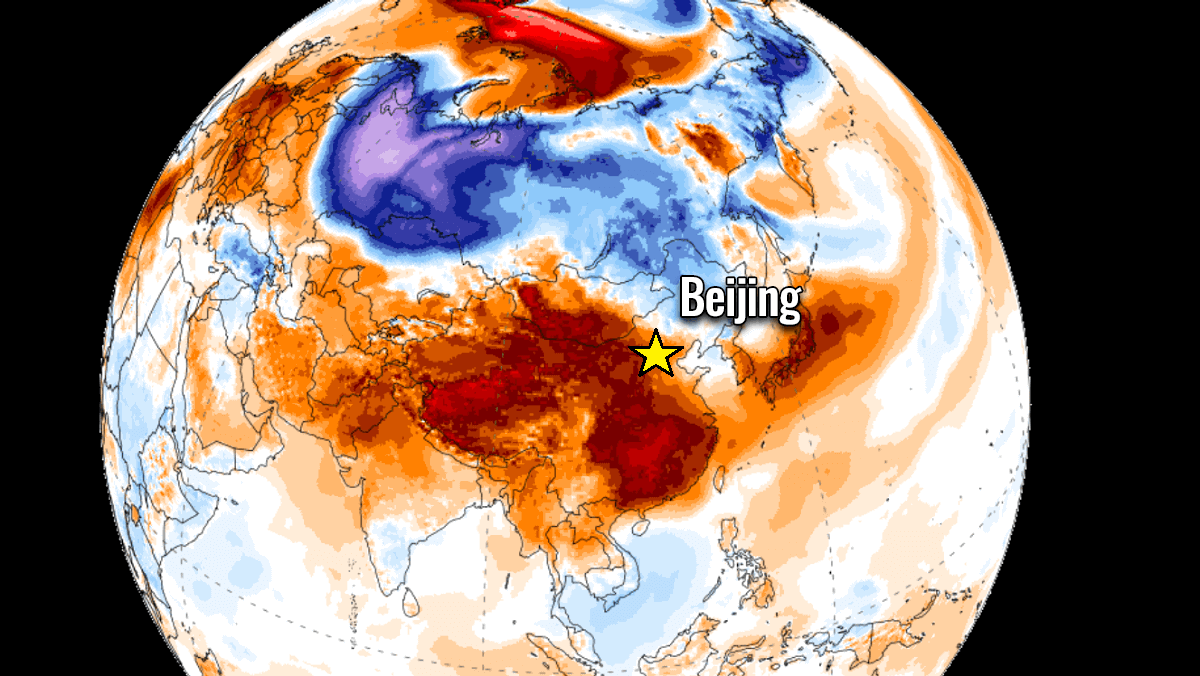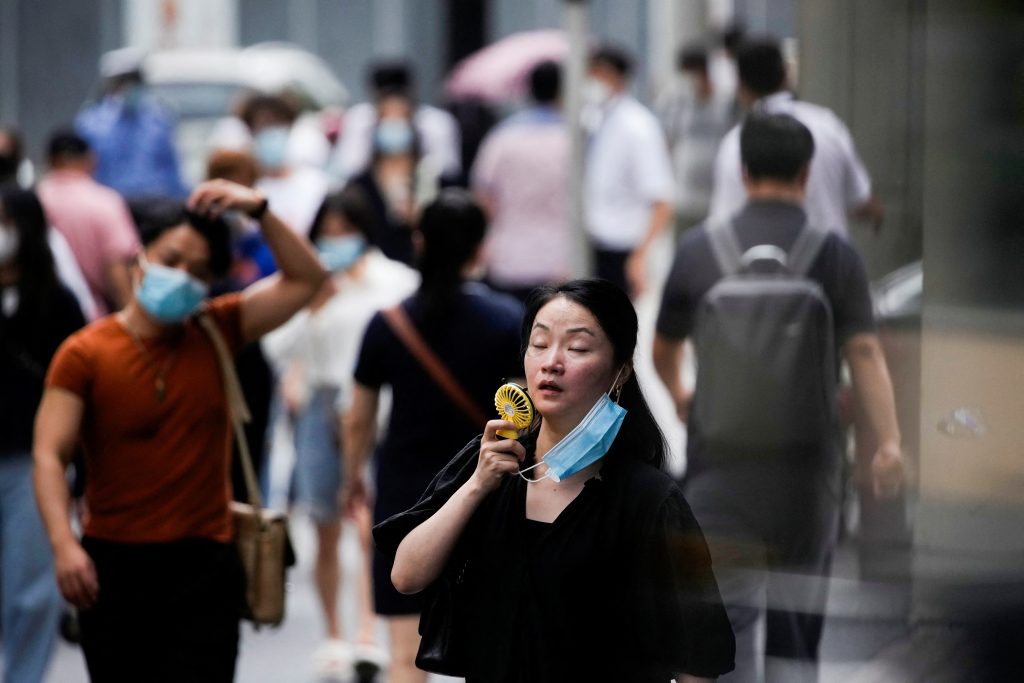News
Beijing Records its Hottest Day Since 1962, Topping 41 Degrees Celsius

According to Chinese weather officials, Beijing saw its hottest June day in more than 60 years, with temperatures reaching 41.1 degrees Celsius (105.9 degrees Fahrenheit). The city is in the grip of a heatwave that is expected to last until the end of June the BBC reports.
Officials declared Thursday to be the hottest June day since records began in 1961.
Several monthly heat records have been smashed in China this year, raising concerns about an energy shortage.
Last month, the country’s largest metropolis, Shanghai, with a population of 25 million people on the east coast, experienced its warmest May day in a century.
Beijing, the country’s northern capital, is home to almost 21 million people. A meteorological sensor in the city’s north reported a high of 41.8 degrees Celsius on Thursday.
Authorities had already issued an orange notice, the second-most severe weather warning, warning that temperatures might exceed 39 degrees Celsius in the days leading up to Saturday.
Last Monday, the National Weather Service issued a heat stroke warning, a fortnight earlier than in prior years.
Local authorities in Beijing, Tianjin, and other northern and eastern Chinese cities warned residents to avoid outdoor labour during the warmest portions of the day and to seek medical attention if they exhibit symptoms of heat stroke.
Some have also advised individuals and businesses to reduce their use of electricity.
The National Energy Administration held its first-ever emergency simulation in China’s eastern region last week, simulating a power surge and outage in the event of a large-scale power loss.
The agency described the situation as “relatively severe” in terms of power grid security.
In the port city of Tianjin, increased demand for air cooling has raised electrical grid load by 23% compared to previous year. Officials added that workers from the local utility agency were checking underground tunnels every day to ensure that power cables were functioning properly.
Global climate change is causing rising temperatures and more frequent heatwaves. According to a research published last month, climate change has rendered heatwaves in Asia 30 times more common.
During an April heatwave, it also elevated temperatures by at least 2 degrees Celsius in numerous parts of Asia. Experts have described the region as undergoing “the worst heatwave in [its] history.”
In April, temperatures in Thailand, Laos, Bangladesh, and India reached 45 degrees Celsius. In some nations, the excessive heat resulted in deaths and hospitalisations, as well as melted roads and other infrastructure.
Heatwaves are one of the world’s deadliest natural disasters, causing thousands of deaths each year. Heat waves are not rare in Asia, and the region has already seen multiple catastrophic heat waves. These occurrences can have serious consequences for human health, agriculture, and the environment.
In 2015, Asia had a notable heat wave. A severe heat wave hit India in May of that year, with temperatures reaching as high as 47 degrees Celsius (116.6 degrees Fahrenheit). Over 2,500 people died as a result of the heat wave, which also created significant water shortages. The next month, Pakistan faced a similar heat wave, with temperatures in some regions topping 45 degrees Celsius (113 degrees Fahrenheit), killing nearly 1,200 people.
Heat waves in Asia have posed considerable concerns in recent years. In June 2019, for example, India had a heat wave, with temperatures reaching 50 degrees Celsius (122 degrees Fahrenheit) in certain areas. Over 100 people died as a result of the excessive heat, which also hampered agricultural productivity. Similarly, in July 2020, Japan experienced a catastrophic heat wave, which killed at least 59 people and hospitalised many more.
The origins of these heat waves are complicated, but they are frequently associated with a mix of climatic conditions such as high-pressure systems, a lack of rainfall, and the impact of climate change. Heat waves can be exacerbated by climate change by increasing the frequency and intensity of extreme weather occurrences. Rising global temperatures can cause more frequent and longer-lasting heat waves, posing considerable challenges to vulnerable populations and ecosystems.
Asia’s governments and organisations are attempting to mitigate the effects of heat waves by putting in place measures such as early warning systems, heatwave preparedness plans, and public awareness campaigns. These initiatives strive to reduce the risks associated with severe heat while also protecting vulnerable communities.
China Slams New US House Committee Against Beijing































